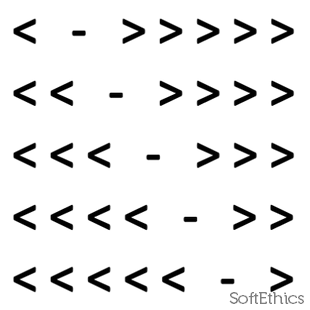#include <stdio.h>
int main()
{
int n = 5;
int i,j,k;
int x = 1;
for(i = 1; i <= n; i++)
{
k = x + i;
for(j = 1; j <= i; j++)
{
if (i % 2 == 1)
{
printf("%2d ", x + j - 1);
}
else
{
printf("%2d ", k - j);
}
if (j != i)
{
printf("# ");
}
}
x = x + i;
printf("\n");
}
return 0;
}
#include <iostream.h>
int main()
{
int n = 5;
int x = 1,k;
for(int i = 1; i <= n; i++)
{
k = x + i;
for(int j = 1; j <= i; j++)
{
if (i % 2 == 1)
{
cout<<(x + j - 1)<<" ";
}
else
{
cout<<(k - j)<<" ";
}
if (j != i)
{
cout<<"# ";
}
}
x = x + i;
cout<<endl;
}
return 0;
}
class PatternProg
{
public static void main(String args[])
{
int n = 5;
int x = 1,k;
for (int i = 1; i <= n; i++)
{
k = x + i;
for (int j = 1; j <= i; j++)
{
if (i % 2 == 1)
{
System.out.printf("%2d ",(x + j - 1));
}
else
{
System.out.printf("%2d ",(k - j));
}
if (j != i)
{
System.out.print("# ");
}
}
x = x + i;
System.out.println();
}
}
}
using System;
class PatternProg
{
public static void Main()
{
int n = 5;
int x = 1, k;
for (int i = 1; i <= n; i++)
{
k = x + i;
for (int j = 1; j <= i; j++)
{
if (i % 2 == 1)
{
Console.Write("{0,2:D} ", (x + j - 1));
}
else
{
Console.Write("{0,2:D} ", (k - j));
}
if (j != i)
{
Console.Write("# ");
}
}
x = x + i;
Console.WriteLine();
}
Console.ReadKey(true);
}
}
n = 5
d = 1
for x in range(1, n + 1):
k = d + x
for y in range(1, x + 1):
if x % 2 == 1:
print("{:2d} ".format(d + y - 1), end="")
else:
print("{:2d} ".format(k - y), end="")
if y != x:
print("# ", end="")
d = d + x
print()





